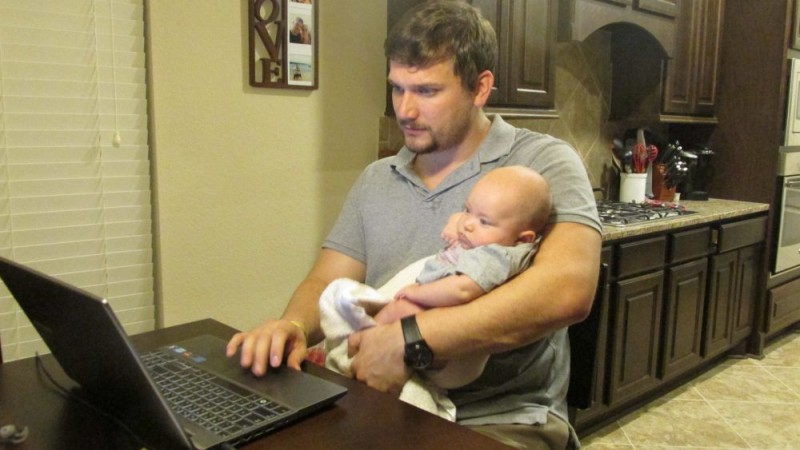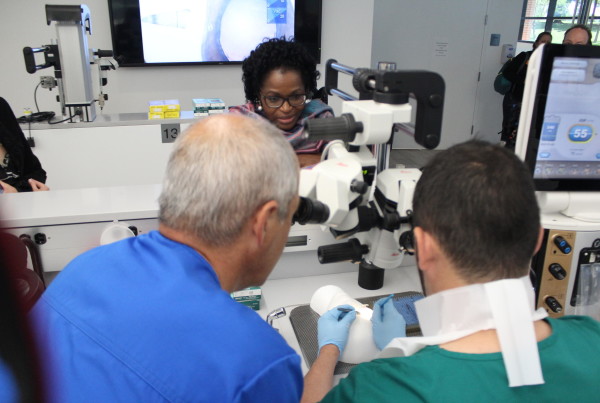This story originally appeared on Houston Public Media.
In higher education, semesters and credit hours are the typical measuring stick. But there’s a different approach that’s attracting more students, more colleges – and more scrutiny.
It’s called competency-based education.
It scraps the traditional idea of taking a course for a full semester. Instead it tries to measure what students know and can do.
“And that’s a more innovative model that really measures mastery of learning rather than time spent in a classroom,” said WGU Texas Chancellor Veronica “Ronnye” Vargas Stidvent.
It’s expanding in Texas and across the country.
Western Governors University, which includes WGU Texas, is the largest and most established player in this arena. The online, nonprofit school has 70,000 students nationally and 7,500 in Texas, with nearly 5,000 graduates in the Lone Star State.
Almost 600 other programs from various providers are in the works, including at the University of Texas system, according to the Competency-Based Education Network.
Stidvent said that this model draws a lot of older students because it meets them where they are physically and academically.
“So they can accelerate through those courses where they have a background, where they’ve taken a class where they’ve been doing this for years on the job, and then they can really spend their time learning and mastering that material that they don’t know,” she said.
For Daniel Porter, it was an easy pick.
He teaches high school geometry in Humble and wants to become a principal. So he’s getting his master’s in education.
After a full day of teaching, he opened his laptop on the kitchen table and got ready to do his own homework with a special study buddy: his baby daughter Lucy.
“There she is! Oh, want some more? Here come on,” Porter said.
Porter gave his baby daughter Lucy a bottle while he checked out his next online assignment about leadership.
He thought of Lucy and his wife when he enrolled with WGU Texas.
“With WGU, I can stay at home and work on the computer and a lot of the other schools didn’t have that option,” he said.
What really sold Porter is that it’s self-paced. He can complete as many credits as he can – for a flat tuition of about $6,000 a year. And he can still care for Lucy, like when she was born.
“Basically for two or three weeks, I couldn’t do anything and with this go-at-your-own-pace, I was able to pick up and catch up pretty quick,” he said.
The chancellor, Stidvent, said that saves students time and money.
But not everyone’s convinced that it’s the best approach.
“It’s a budget education for people who can’t afford the thing that isn’t budget, right?” said Amy Slaton, who studies higher education at Drexel University.
She worries students will miss out on other classroom experiences that a professor can’t even predict.
“I mean, I learn a tremendous amount when I teach,” she said. “That’s because my students bring things to the room that I don’t expect to be there, right? And that does not happen if you’ve got a standard rubric there ahead of time where you’ve already decided what’s meaningful.”
The doubts about competency-based education aren’t just theoretical. They’ve gotten the attention of the feds.
The inspector general at U.S. Department of Education is conducting an audit of Western Governors.
It’s ongoing, even as the nonprofit has been a darling of the Obama Administration.
The inspector general’s office declined to comment about the audit. Inside Higher Ed has reported that it involves how much students interact with faculty.
Regarding the audit, WGU said that it’s been reviewed by multiple groups before and passed inspection.
As for the student experience, it said that it’s got that covered. Mentors call and check in with students every week.
Porter hears from his mentor, D.B. or Deborah Bartlett, regularly. She mentors 75 students total.
“And I always ask him what has he accomplished and what’s his goals for next week. And I answer any questions he has,” Bartlett said.
Porter said that he also chats online with other students, and his adviser for his final project will be someone he sees frequently: his principal on campus where he teaches.
Porter said that he doesn’t miss the traditional college environment because he had that as an undergrad about ten years ago at Sam Houston State.
Now he just wants to finish. He hopes to graduate in December 2016, a year earlier than his expected date.
“Then again you know got little Lucy here, and as you can tell, she’s a bundle of joy,” he said.
Editor’s Note: For full disclosure, WGU Texas is an underwriter of Houston Public Media.
















